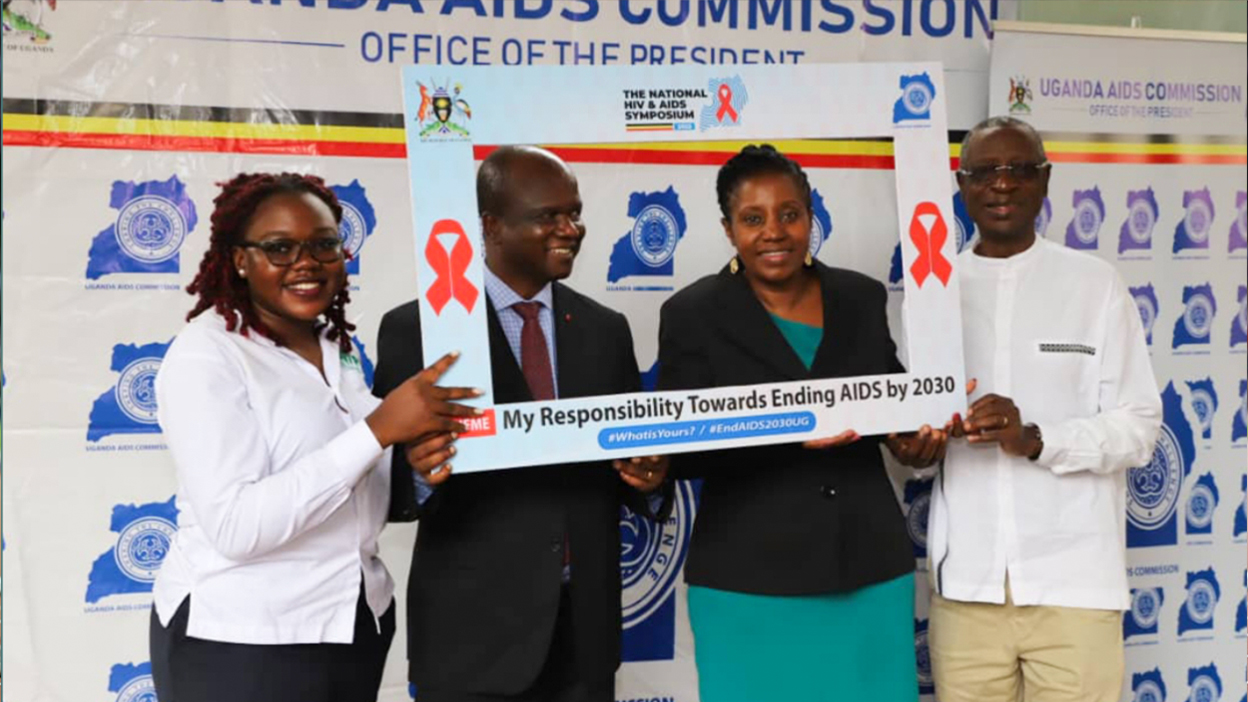Ugandans, especially youth and adolescents, have been urged to use HIV/AIDS preventive measures like the use of condoms to achieve the 2030 goal.
Dr. Musooba, the president of the Uganda AIDS Commission, expressed concern over the prevalence of the virus among the younger population, which he says highlights the need for targeted education and awareness campaigns to promote safe sexual practices and encourage regular testing.
This comes at a time when Uganda is set to join the rest of the world to commemorate International AIDS Day on the 1st of December.
More than 1.4 million people in the country are living with HIV, with 1000 people estimated to be infected every week, which means more than 5000 people are infected a year.
It is also believed that in Uganda, the HIV virus originated in the Rakai district, where many attached it to witchcraft because of its cruelty in the 1980s.
According to the Uganda Aids Commission, the number of deaths from HIV/AIDS has decreased dramatically since the introduction of treatment, which is a success towards the government’s agenda of ending HIV/AIDS spread by 2030.
The virus is particularly prevalent among young people and adolescents between the ages of 15 and 25
Dr. Steven Watiti, 70 years old, who has lived with the virus for more than 20 years, says if people get to know their HIV status and work together, the disease can be contained, especially among teenagers and young people who carry it, as they are the most vulnerable.
He has urged the youth, especially teenagers, to be vigilant because the disease exists within their communities. He says even at the age of 70, he still looks in good shape, and he attributes it to taking medication and encourages HIV-positive people to do the same.
Dr. Nelson Musooba, the head of the Uganda Aids Commission, has revealed that there has been a drop in the number of people getting infected with the virus.
There is a growing enthusiasm for HIV testing among Ugandans. Musooba commends this and says it would help curb the spread of the virus, thus achieving the 2030 agenda.
Ruth Awori, the head of the Uganda network of young people living with HIV, said they could have fought the virus, but these people are being discriminated against and stigmatized, which is a stumbling block in the fight.
The task of fighting HIV/AIDS is not only the government’s responsibility but also everyone’s duty.





